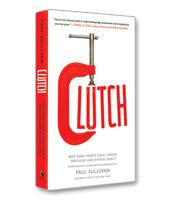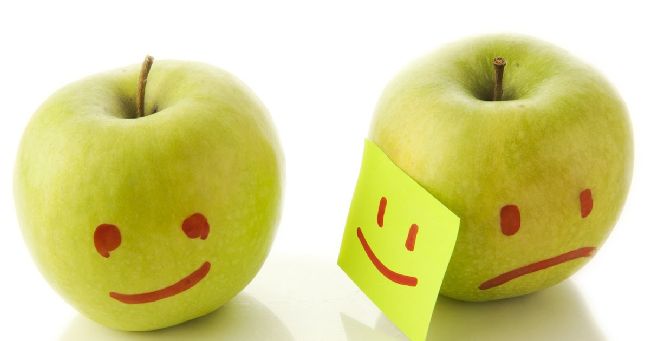 I feel for people trying to learn English. One word can have so many meanings. Take the word clutch, for example.
I feel for people trying to learn English. One word can have so many meanings. Take the word clutch, for example.
A clutch is a mechanical device which provides driving force to another mechanism, typically by connecting the driven mechanism to the driving mechanism. Its opposite component is a brake, which inhibits motion.
Clutch may also refer to:
- Clutch (pin fastener), a device used to secure pins
- Clutch (band), a musical group from Germantown, Maryland
- Clutch (eggs), a collection of eggs in a single nest
- Clutch (handbag), a purse designed to be carried (clutched) in one’s hand
- Clutch (sports), referring to performing well under extreme pressure in sports (American)
- Clutch (mascot), the mascot of the Houston Rockets
- Clutch (G.I. Joe), a member of G.I. Joe
- CLUTCH (magazine), a small press literary magazine
- A character in the Degrassi series played by Steve Bedernjak
- A slang word referring to the aesthetic term “cool”
- A slang word meaning to perform under pressure
- Clutch (first person shooters), a successful individual win in team play
- Clutch (video game), Racing game developed by Targem Games
- The Clutch, an American collective of songwriters http://en.wikipedia.org/wiki/Clutch_(disambiguation)
Could one embody all or several of these meanings simultaneously? Gather eggs in your elegant, handheld purse while scoring a 3 pointer in the final seconds of the fourth quarter, while writing a song in your head that would be accompanied by a poem to be published in a literary magazine?
I like music, eggs, purses, literary magazines, video games and songwriters well enough, but I’m mainly interested in the meaning of “clutch” that is “a slang word meaning to perform well under extreme pressure.” I’m interested in where that connotation of the word came from. I’m even more interested in how to become more “clutch.”
As for where the word came from, the website The Word Detective is helpful. This is a site devoted to “Words and Language in a Humorous Vein on the Web Since 1995. In response to a reader’s question about the origin of the word clutch to mean “cool,” in a general sense, or “performing well under pressure,” the Word Detective wrote:
“To begin at the beginning, “clutch” first appeared in English in the 14th century (from the Middle English “cloke,” claw) with the meaning “the claw of a beast or bird of prey.” By the 16th century, we were using it in the sense of “the human hand,” especially in the plural and with overtones of cruelty or danger, still heard in phrases such as “in the clutches of the criminals.” In tandem with the verb “to clutch,” the noun eventually moved on to meaning simply “very tight grip on, or desperate grab at, something.” The mechanical sort of “clutch,” which connects or disconnects power from an engine, dates to the early 18th century and takes its name from its tight grip when engaged.
The use of “clutch” to mean “a high-pressure situation or critical moment” was definitely popularized in sports, particularly baseball, where the term was in use by the 1920s. A poster to the mailing list of the American Dialect Society a few years ago suggested that the usage may have been drawn from the famous poem “Invictus” by the English poet W.E. Henley, which contains the line “In the fell clutch of circumstance, I have not winced nor cried aloud” (“fell” meaning “cruel or fierce,” as in “one fell swoop”). Inasmuch as “Invictus” (Latin for “unconquered”) was part of the standard English curriculum in many schools of the period, it’s certainly possible that the word simply popped into the mind of a sportswriter and grew from there.
But it’s equally likely that “in the clutch” meaning in the “moment of crisis” arose as a variant of “in the pinch,” also meaning “at a critical juncture,” which had been used in baseball since the first years of the 20th century. This “pinch” also gave us “pinch hitter,” a substitute batter who steps in when the team is in an especially tight spot.” http://www.word-detective.com/2008/10/07/clutch-in-the/
My obsession with this concept of “clutch,” began on a recent commute to work when I heard the author of the 2010 book Clutch, Paul Sullivan, interviewed on NPR. The subtitle of his book is “Why Some People Excel Under Pressure and Others Don’t.” Intrigued, I tracked down the book in my local Borders bookstore. Not finding it in the self help section, I sought out a clerk who directed me to the “business” section downstairs. That made sense, since Paul Sullivan is a former reporter, editor and columnist for The Financial Times. He currently writes the “Wealth Matters” column for The New York Times.
Someone who is “clutch,” according to Sullivan, “is able to react in a pressure-filled situation the way they would act normally.” (8) He asks why some people are so much better under pressure than other, seemingly equally talented people? Says Sullivan, “The reality is that most people fail in extreme situations. They may be able to do what they do just fine under everyday conditions, but when the pressure mounts, their ability leaves them. They choke.” (9)
Chokers, Sullivan discovers, from interviews with people from sports to the military, to acting and the business world, share three traits. 1. They are unable to accept responsibility for what they have done when something goes wrong. 2. They over think situations which can have a paralyzing effect. 3. They are overconfident, tending to rely on talent and neglect training.
Clutch performers, by contrast, share several very different traits and habits: 1. They focus. This is the basis for all great performances under pressure. They are fully present and they block out everything else but the challenge at hand 2. They have discipline that comes from practice. 3. They are adaptable, learning from mistakes and adjusting to changes in plans on the spot and making mid course corrections necessary for a successful outcome. 4. Many clutch individuals have navigated through pressure-filled upbringings that have made them strongly motivated, both by fear of revisiting negative situations and desire for better ones. A person who has practices such a habitual life strategy day by day for years is not likely to become paralyzed in an extreme situation.
Sullivan thinks you can practice being clutch. At a recent speaking engagement, we experienced technical difficulties. They didn’t have the right plugs; my machine and their projector had trouble forming a lasting relationship. The associate pastor stepped up and brought out a tool box with every imaginable kind of cord. He got everything working. But then, just as I was about to begin, someone (not me or the associate pastor) tripped over the cord and my PowerPoint went blank. Did I mention the event was being televised? Once again, the associate pastor was “clutch,” calmly rectifying the situation with only a slight sheen of sweat on his brow to indicate his internal intensity. When I thanked him later, he said, “I am always prepared for something to go wrong. I always have two things with me: 1. my technology first aid kit and 2. My motto: “never let them see you sweat (much).”
My husband is “clutch.” I still remember his calm, take charge handling of the time our then teen age daughter’s friend sliced a deep gash in her finger while her parents were away and the girls were making dinner at her house. Our daughter called, and with not that much exaggeration, said, “Dad, Mariah’s cut off her finger. Can you take her to the ER?” Whenever one of the kids is lost, has had a car accident, or faces a financial crisis- (rent due, account empty), they call. I answer and start to chat and they interrupt with, “Mom, I need Dad.” I can accept that. Dad is clutch.
Life calls for clutch. Air traffic controllers, nurses, wait staff, chefs and sous chefs, actors and actresses, parents, athletes, people caught in natural disasters and those who seek to help them, soldiers, daily caught in life endangering situations,- their lives call for clutch.
I can be clutch, too, just in different situations. I go into a luncheon that I was told was to be a “question and answer,” and see that I am to make a half hour talk. OK. I don’t choke. I quickly run my mind down the playlist of things I’ve been thinking about and writing about lately, grab a title and topic, jot a few things on a napkin, including a question to open with and a story to close with. And it’s go time and it goes fine.
I need to spend some time thinking about when I am clutch and when I’m not. Because, if Sullivan is right, and a person can practice being clutch, then there is something you and I can do to avoid future choking hazards. We can recognize an area we need to work on, admit our mistakes, take responsibility for them, and discipline ourselves to prepare for the next crisis. The fact that we don’t quite know what form it will take is no excuse. I see now why counselors do case studies and soldiers do training exercises, and musicians practice their instruments, and performers prepare for performance anxiety by deep breathing, and fire fighters do drills. They’re preparing to be clutch: focused, fully present to the challenge of the moment, adaptable and prepared, through prior, consistent discipline











